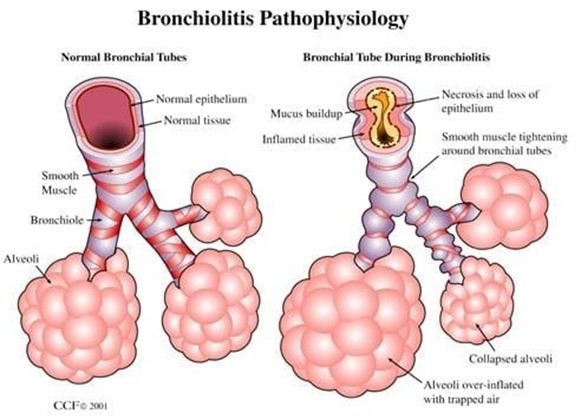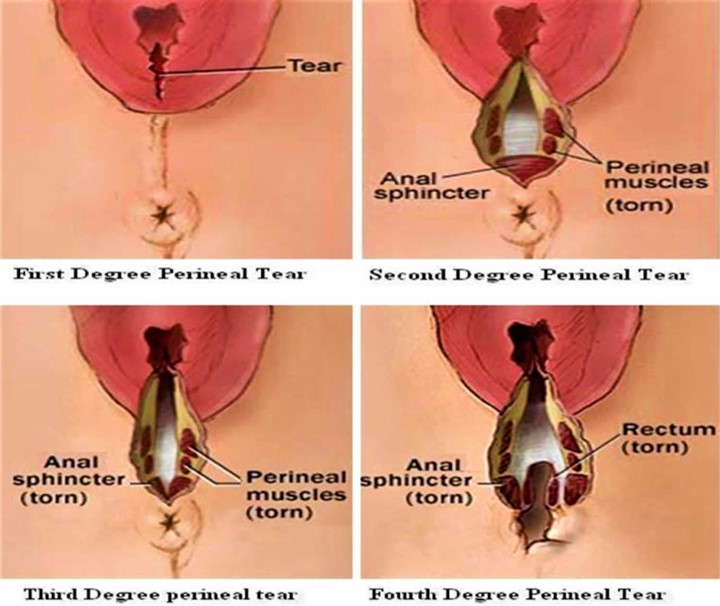A 3-month-old with bronchiolitis is brought to the clinic experiencing irritability and poor oral intake. Which finding should alert the practical nurse (PN) that the child is in acute respiratory distress?
Flaring of the nares.
Resting respiratory rate of 35 breaths/minute.
Bilateral bronchial breath sounds.
Diaphragmatic respirations.
The Correct Answer is A
Flaring of the nares, or widening of the nostrils, is a sign of respiratory distress in infants. It indicates that the child is working harder to breathe. This finding should alert the practical nurse (PN) that the child with bronchiolitis is in acute respiratory distress.
A resting respiratory rate of 35 breaths/minute (B) is within the normal range for a 3-month-old infant. Bilateral bronchial breath sounds (C) and diaphragmatic respirations (D) are not specific signs of acute respiratory distress in infants.

Nursing Test Bank
Naxlex Comprehensive Predictor Exams
Related Questions
Correct Answer is D
Explanation
If a postpartum client who delivered vaginally 6-hours ago and had a second-degree perineal laceration reports feeling increased pain and pressure in her vaginal area, the practical nurse (PN) should apply an icepack to the perineum.Applying an icepack can help reduce swelling and provide pain relief in the affected area. The PN should also monitor the client's condition and report any changes or concerns to the healthcare provider. The other interventions listed may also be appropriate in some situations, but applying an icepack to the perineum is the most appropriate initial intervention in this situation.

Correct Answer is A
Explanation
The practical nurse (PN) should ask the client if he is planning to obey the voices, as this will help determine the client's risk for harming himself or others. The PN should also ask about the onset and duration of the symptoms and any factors that may have triggered them, such as drug use or recent stressors. Additionally, the PN should assess the client's perception of the voices, as some individuals may recognize them as a symptom of a mental illness, while others may believe them to be real. It is important for the PN to remain non-judgmental and supportive during the assessment, while prioritizing the client's safety.
Whether you are a student looking to ace your exams or a practicing nurse seeking to enhance your expertise , our nursing education contents will empower you with the confidence and competence to make a difference in the lives of patients and become a respected leader in the healthcare field.
Visit Naxlex, invest in your future and unlock endless possibilities with our unparalleled nursing education contents today
Report Wrong Answer on the Current Question
Do you disagree with the answer? If yes, what is your expected answer? Explain.
Kindly be descriptive with the issue you are facing.
